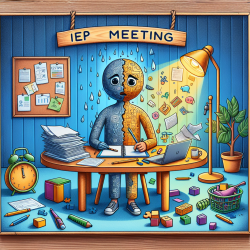The realm of mild traumatic brain injury (MTBI) is complex, with outcomes varying significantly based on the presence of intracranial abnormalities. Recent research titled "Neuropsychological Outcome and Diffusion Tensor Imaging in Complicated versus Uncomplicated Mild Traumatic Brain Injury" offers valuable insights for practitioners looking to enhance their understanding and treatment approaches.
Research Overview
This study investigated whether intracranial neuroimaging abnormalities in individuals with MTBI, termed "complicated" MTBIs, are associated with worse subacute outcomes compared to those without such abnormalities, or "uncomplicated" MTBIs. The research involved 62 adults who underwent neurocognitive testing, symptom ratings, and diffusion tensor imaging (DTI) approximately 6-8 weeks post-injury.
Key Findings
- There were no significant differences between the complicated and uncomplicated MTBI groups in terms of symptom ratings or a broad range of neuropsychological tests.
- However, DTI revealed increased radial diffusivity and decreased fractional anisotropy in several brain regions among the complicated group, indicating potential differences in myelin integrity.
- The division into complicated and uncomplicated subtypes did not predict worse clinical outcomes at 6-8 weeks post-injury.
Implications for Practice
The findings suggest that while macrostructural changes are evident through advanced imaging techniques like DTI, these do not necessarily translate to worse clinical outcomes in the short term. Practitioners should consider the following:
- Integration of Advanced Imaging: Utilize DTI as a supplementary tool to traditional imaging methods to gain deeper insights into the microstructural changes following MTBI.
- Cautious Interpretation of Imaging Results: Recognize that imaging abnormalities do not always correlate with clinical symptoms or cognitive deficits.
- Holistic Assessment Approach: Incorporate comprehensive assessments that include cognitive testing and symptom evaluations alongside imaging results to form a complete picture of the patient's condition.
Encouraging Further Research
This study highlights the need for ongoing research to better understand the long-term implications of DTI findings in MTBI. Future studies could explore:
- Longitudinal Studies: Track patients over extended periods to assess how DTI findings correlate with long-term outcomes.
- Differentiating Subtypes: Investigate specific subtypes of intracranial abnormalities and their unique impacts on recovery trajectories.
- Psycho-Social Factors: Examine how psychological and social factors interact with neuroimaging findings to influence recovery.
The nuanced understanding of MTBI provided by this study can serve as a foundation for practitioners aiming to refine their diagnostic and treatment strategies. By embracing advanced imaging techniques and considering a holistic approach to assessment, practitioners can better support patients with MTBI.
To read the original research paper, please follow this link: Neuropsychological Outcome and Diffusion Tensor Imaging in Complicated versus Uncomplicated Mild Traumatic Brain Injury.










